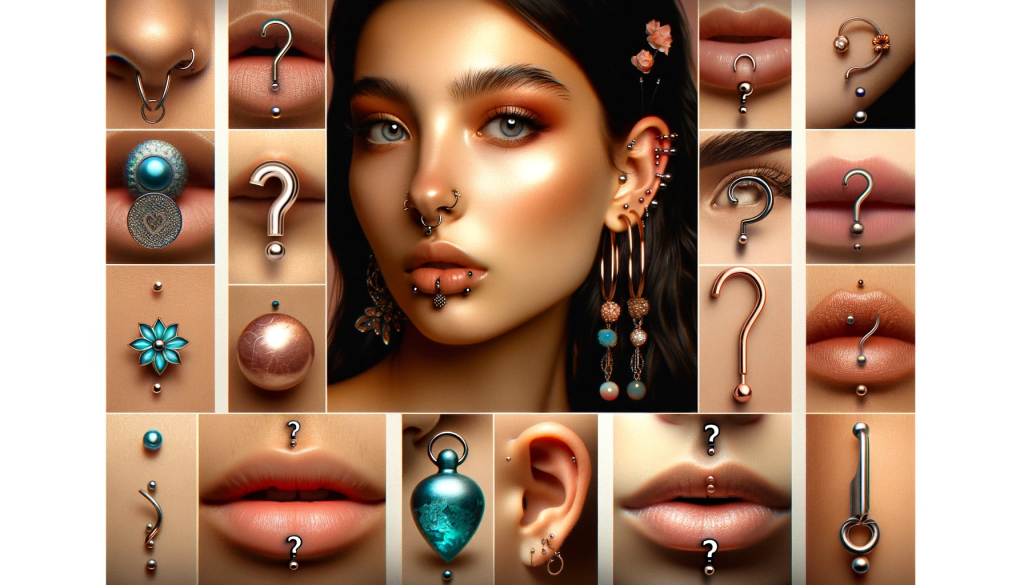“Shine Bright, Not Sore: The Importance of Choosing the Right Metal for Your Body Piercing”

In the world of body piercings, the metal of your jewelry isn’t just a fashion statement, it’s a health choice! Selecting the right metal for your body piercing jewelry is crucial, not only to enhance your style but also to ensure your piercing heals correctly and remains irritation-free. Let’s dive into why metal matters and what options are best for your body art.
Why Metal Matters
- Allergy and Irritation Risks: Many people are unaware that they have metal allergies until they get a piercing. The wrong metal can cause allergic reactions, skin discoloration, and even infections. Nickel, commonly used in both budget and high-end metals, is a notorious allergen, often leading to skin irritation.
- Healing Process: The metal you choose can impact the healing process of your piercing. Some metals are more prone to causing reactions and can slow down or complicate healing.
Top Metal Choices for Piercings
- Titanium: This metal is a fantastic choice for initial piercings. It’s lightweight, strong, and hypoallergenic, making it suitable for those with sensitive skin. Plus, its resistance to corrosion in saline environments ensures longevity.
- Niobium: Similar to titanium, niobium is hypoallergenic and non-reactive. It’s heavier and more expensive but is a safe choice for those with metal sensitivities.
- Surgical Stainless Steel: A popular and budget-friendly option, surgical stainless steel is hypoallergenic and durable. However, it contains trace amounts of nickel, which can be problematic for those with severe allergies.
- Gold: Gold is inert and doesn’t react with the body, making it ideal for new piercings. However, avoid pure 24k gold as it’s too soft for internal use. Stick to 14k gold for body jewelry to ensure stability and safety.
- Platinum: This precious metal is non-reactive and safe for body jewelry. Platinum is a high-end choice, offering peace of mind for those concerned about skin irritation but at a higher cost.
- Aztec Gold (PVD): A great alternative to traditional gold, Aztec Gold doesn’t react with the body, making it suitable for those with allergies. It’s lightweight and can mimic the look of gold without the associated risks.
- Tygon: Not a metal, but a plastic material, Tygon is used for extreme metal allergies or specific situations like pregnancy. It’s a safe alternative for those who cannot tolerate any metal in their piercings.
Metals to Avoid
- Sterling Silver: Despite its popularity in jewelry, sterling silver can be harmful as a body piercing material, particularly during the healing process. It may tarnish and discolor the skin, impacting healing and potentially causing infection.
- Iron: While beautiful in bracelets, iron is unsuitable for piercings. It oxidizes and rusts when exposed to moisture, leading to painful reactions and potentially serious complications.
Making the Right Choice
The key takeaway? Choose wisely and consult with your piercer. They can provide invaluable advice on the best metal for your skin type, piercing location, and lifestyle. Remember, your piercing is not just an adornment; it’s a part of your body. Treat it with care, and it will be a source of pride and joy for years to come. Shine bright with the right metal, and your piercing will not only look fantastic but also feel comfortable and irritation-free!
